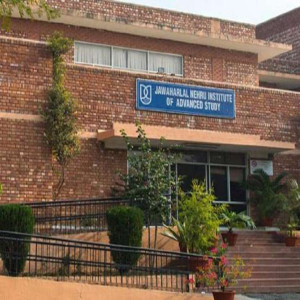JNU Issues New Guidelines to Prevent Spread of Covid-19 On Campus
 In the wake of rising Covid-19 cases, the Jawaharlal Nehru University on Sunday issued fresh directions for students and staff members, including mandatory thermal screening and wearing of face mask at hostels and inside all buildings on campus. Delhi recorded 3,567 Covid-19 cases on Saturday and the positive rate continued to rise to 4.48 per cent from 4.11 per cent a day ago while 10 more people succumbed to the deadly virus.
In the wake of rising Covid-19 cases, the Jawaharlal Nehru University on Sunday issued fresh directions for students and staff members, including mandatory thermal screening and wearing of face mask at hostels and inside all buildings on campus. Delhi recorded 3,567 Covid-19 cases on Saturday and the positive rate continued to rise to 4.48 per cent from 4.11 per cent a day ago while 10 more people succumbed to the deadly virus.
The national capital has seen an increase in cases with 3,594 cases being reported on Friday, the highest daily count this year, 2,790 cases on Thursday, 1,819 cases on Wednesday and 992 cases on Tuesday, according to official data. In a circular, the Jawaharlal Nehru University (JNU) said face masks will be mandatory for students and employees across the campus, including at hostels, library, administrative buildings and on the road.
“Students and employees will be allowed in hostels, administrative buildings, school buildings and the Dr B R Ambedkar Central Library and other buildings and public spaces, including shopping complexes and walking on the road, if they are found wearing the mask,” it said.
JNU instructed faculty and staff members to use face masks at all times “to set an example” with regard to observing COVID-19 protocols. Shopkeepers and canteen staff have also been instructed to wear face masks.
The circular said that “any violation would attract closure of shop or canteen for two days initially, and further violation will be dealt with strictly as per guidelines and norms of the government of India, the Delhi government and the University notification, etc”.
Hand sanitisation and thermal screening have been made mandatory at all key points, including at schools, special centres, hostels, the administration building and the central library, it said.
“Vendors visiting science schools, the Advanced Instrumentation Research Facility (AIRF), special centres, administration building and other establishments will not be allowed to visit the labs unless authorised by the relevant respective offices,” the circular said. The university may review guidelines for reopening, if cases “rise exponentially”, it said.

